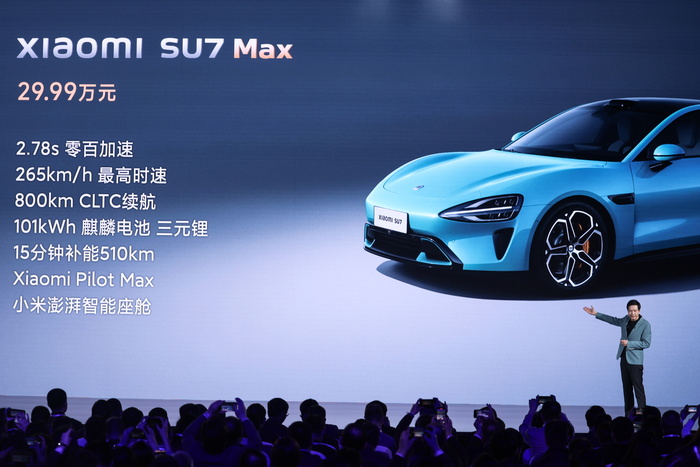2021 can be described as an "anti-monopoly" year. The giant tech companies are facing strong pressure from the Chinese regulatory authorities. Among the Hong Kong stocks, "ATMJ" has not been spared. Stock prices have fallen sharply from high levels, and some have fallen by nearly half.
In the past week, investors have felt more deeply about the central government’s "raid" of the capital market. Known as the "champion analyst", Cai Jinqiang, president and investment director of Olu Capital, analyzed that the relevant regulation is to "equalize" the society and combat "sensuality." .
Faced with the US stock market's top break, Hong Kong stocks became lifeless. Cai Jinqiang sighed: "I don't want to play!"
The "visible hand" of the central government extended to all walks of life one by one. Last week it "raided" the education sector again, triggering a round of stock-washing in the Hong Kong stock market. Many sectors have slumped. Education stocks are almost "Game Over", and technology stocks are also mourning again and again. Hung.
In March of this year, the regulatory storm accelerated, and the strengths such as Tencent (0700) and Meituan (3690) both suffered repeated setbacks. Coupled with the flood of warehouses at the beginning of this week, the decline was still significant.
Meituan retreated from a high of 460 yuan, and once fell to a low of 190.4 yuan on Wednesday (28th), a cumulative drop of more than 58%, which is indeed "cut in the middle"!
The technology stocks have been beautiful since the beginning of the year, and now the corpses are everywhere, all because of the severe suppression by the central government. What is the reason behind it?
Alibaba (9988) is the first batch of technology stocks to be "rectified".
(Profile picture)
"Equal rights" blocks the transfer of technology giants' resources
Regarding the central government's calculations, "Champion Analyst" Cai Jinqiang is convinced that there are two main reasons. One is to "equalize" the society.
He pointed out that "the central government must prevent the emergence of powerful vested interest groups because they are too powerful, solidifying the entire social class, and affecting innovation and mobility."
From cracking down on the real estate and financial industries in the past, today’s target is shifted to the platform company "ATMJ". Cai Jinqiang emphasized that the central government is "equalizing rights" for the society. "Are large-scale technology projects only affiliated with Ali, Tencent, or JD? Normal! If the central government improperly restrains, such as allowing e-commerce to develop, won't all the taxis on the street face the closure of business? Wouldn't it affect employment in the end?"
Cai Jinqiang further pointed out that the reason behind equal rights is the strength of technology companies and the weakening of certain groups. In fact, it is the transfer of resources.
He does not deny that the strength of Ali (9988) is not technology-oriented, but the platform company "Pond Shui Bo Tong Yu", which puts other people's money in his own pocket.
"Ali's GMV (Gross Merchandise Volume) is important to Alibaba and shareholders, but is it useful to the country?"
Cai Jinqiang believes that one of the main reasons for the central government's suppression of technology companies is to "attack sensuality" and strengthen the real economy.
(Photo by Luo Junhao)
Cracking down on the real economy
In addition to "equal rights", another major reason for the central government's strong supervision of technology companies is that Cai Jinqiang believes that it is to combat "sensuality."
"Sexy dog and horse" generally refers to the obscene way of the ruling class in the old days, while Cai Jinqiang defines it as a company that has a negative impact on the social atmosphere today.
He also pointed out that because China wants to compete with the United States, the central government realizes that its "body" is relatively weak and cannot allow technology to be controlled by the United States. Therefore, the economic model has to be gradually shifted from finance, real estate, and even platform economy to entities. "Sensual dogs and horses."
However, Cai Jinqiang added that anti-monopoly is not unique to China, but a worldwide phenomenon, which generally targets the platform economy and lasts for three years or more.
And Chinese platform companies may get out of the regulatory haze faster because they are not able to compete with the central government. I believe they will actively invest resources to innovate, just as Ali and Tencent announced this year to increase investment.
He expects that the regulatory measures will stabilize next year, but at the same time the growth rate will also slow down.
Cai Jinqiang is optimistic that Hong Kong stocks have the ability to become China's "second board market."
(Profile picture)
Hong Kong stocks are essentially "split", but are they looking forward to China's deadlock?
Although technology stocks have fallen under the tightening of regulations, the overall Hong Kong stocks are also "bearing." In July, the highest of 28,859 points was inserted into more than 4,000 points, and it was as low as 24,748 points throughout the week.
However, the US stocks on the other side have repeatedly broken their tops. The three major U.S. stock indexes hit all-time highs in July, and the Dow once again reached 35,000 points, which is inconsistent with the performance of Hong Kong stocks.
The reason why Hong Kong stocks are "unconvinced" is that Cai Jinqiang believes that Hong Kong's role is becoming more and more awkward, and he even said with a smile that the Hong Kong market is quite "schizophrenic."
As Hong Kong implements a linked exchange rate, the interest rate policy also follows that of the United States, but the real economy follows that of the Mainland; many people follow the investment philosophy of Europe and the United States, but the securities they buy and sell are Chinese companies.
Cai Jinqiang believes that the Hong Kong market is susceptible to external disturbances, coupled with the weak turnover of individual stocks. Only a few stocks have a daily turnover of more than 100 million yuan. Funds are focused on the head. Over time, investors are reluctant to participate, "I don't want to play!"
Although Hong Kong stocks are less attractive than US stocks, Cai Jinqiang is optimistic about the ability of Hong Kong stocks to become China's "second board market."
He pointed out that Hong Kong’s opportunity lies in the listing reform and the launch of the technology index. Because companies listed on the Variable Interest Entity (VIE) structure and unprofitable companies cannot be listed in the country, there are more and more disguised companies. First-class companies are listed in Hong Kong and gradually become China's second-board market.
"There must be a "dead chicken clinging", a market of 7 million people, and the heart is not big, you can hold the two stalls well."





/cloudfront-eu-central-1.images.arcpublishing.com/prisa/3I74UEXLYRBBRPGPSGWNN6WXH4.jpg)

